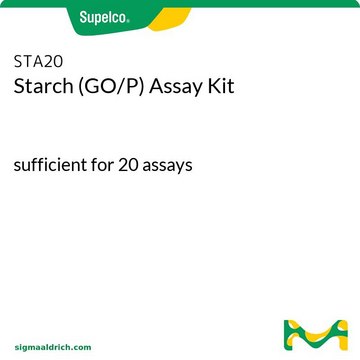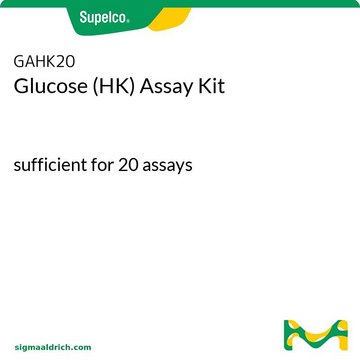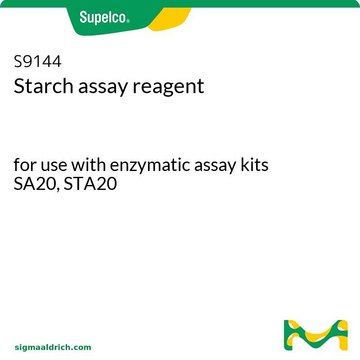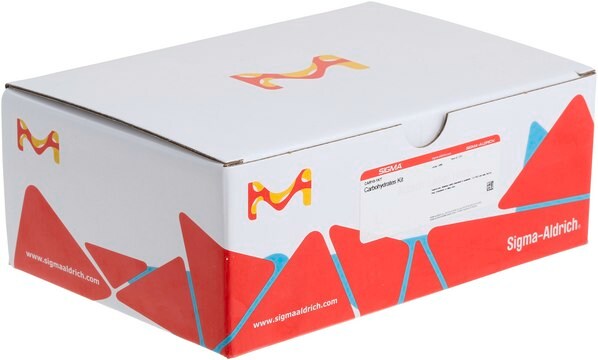SA20
Starch (HK) Assay Kit
sufficient for 20 assays
Synonym(s):
Starch Quantitation Kit
About This Item
Recommended Products
usage
sufficient for 20 assays
Quality Level
analyte chemical class(es)
sugars
technique(s)
photometry: suitable
application(s)
food and beverages
general analytical
storage temp.
2-8°C
Application
Kit Components Only
- glucose assay reagent 20 mL
- starch assay reagent 1 mL/vial
- starch assay standard 5 g
related product
Signal Word
Warning
Hazard Statements
Precautionary Statements
Hazard Classifications
Eye Irrit. 2 - Skin Irrit. 2 - STOT SE 3
Target Organs
Respiratory system
Storage Class Code
11 - Combustible Solids
Certificates of Analysis (COA)
Search for Certificates of Analysis (COA) by entering the products Lot/Batch Number. Lot and Batch Numbers can be found on a product’s label following the words ‘Lot’ or ‘Batch’.
Already Own This Product?
Find documentation for the products that you have recently purchased in the Document Library.
Customers Also Viewed
Articles
Nuclear magnetic resonance (NMR) spectroscopy measures the extent to which a glycan or other molecule distorts a magnetic field.
Protocols
Enzymatic methods for food analysis are highly specific and offer considerable time and cost savings over other methods, especially from the sample preparation standpoint. We offer a wide variety of convenient kits and reagents for rapid and reliable enzymatic food analysis.
Our team of scientists has experience in all areas of research including Life Science, Material Science, Chemical Synthesis, Chromatography, Analytical and many others.
Contact Technical Service









